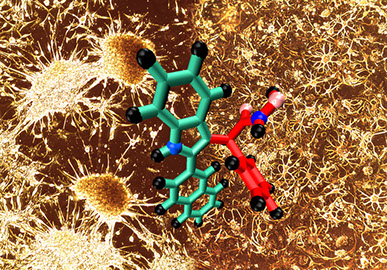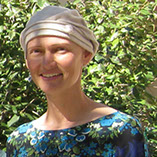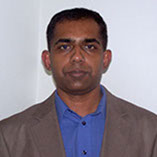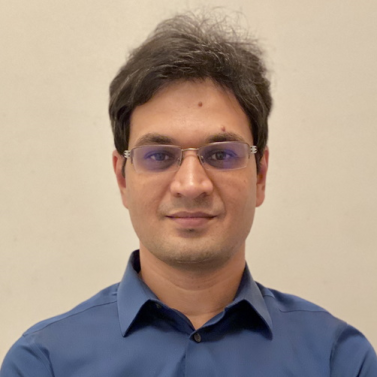
Biomedical and Medicinal Chemistry
 Biomedical and Medicinal chemistry research at New Mexico Tech focuses on the discovery,
design, synthesis and evaluation of novel bioactive molecules. Research in this area
involves a strong synthetic organic component, which often leads to the development
of novel synthetic methodologies to construct anticancer, antibacterial or antiviral
agents.
Biomedical and Medicinal chemistry research at New Mexico Tech focuses on the discovery,
design, synthesis and evaluation of novel bioactive molecules. Research in this area
involves a strong synthetic organic component, which often leads to the development
of novel synthetic methodologies to construct anticancer, antibacterial or antiviral
agents.
Faculty
Associate Professor
 Dr. Pias studies the structural dynamics of biochemical systems, with the aim of gaining
insight into metabolic regulatory mechanisms. Her current focus is on oxygen flux
across biological membranes and other cellular lipid structures. Given the central
importance of aerobic metabolism for human health, hindrance of oxygen transport on
the cellular level can have enormous consequences, impacting tumor cell metabolism,
cardiac function, and diabetic insulin response. The Pias Group takes a biophysical
chemistry approach, using computer simulations to gain insight into lipid structural
dynamics and oxygen diffusion.
Dr. Pias studies the structural dynamics of biochemical systems, with the aim of gaining
insight into metabolic regulatory mechanisms. Her current focus is on oxygen flux
across biological membranes and other cellular lipid structures. Given the central
importance of aerobic metabolism for human health, hindrance of oxygen transport on
the cellular level can have enormous consequences, impacting tumor cell metabolism,
cardiac function, and diabetic insulin response. The Pias Group takes a biophysical
chemistry approach, using computer simulations to gain insight into lipid structural
dynamics and oxygen diffusion.
Associate Professor
 Accurate and rapid detection of pathogens in contaminated water and food samples is
necessary to prevent spread of certain infectious diseases. Dr. Piyasena and his research
group explore developing miniaturized bioassay systems utilizing microfluidics and
surface modification techniques for pathogen detection and environmental monitoring.
Accurate and rapid detection of pathogens in contaminated water and food samples is
necessary to prevent spread of certain infectious diseases. Dr. Piyasena and his research
group explore developing miniaturized bioassay systems utilizing microfluidics and
surface modification techniques for pathogen detection and environmental monitoring.
Associate Professor

Genome maintenance is an essential cellular task. Compromised genomic integrity results in several debilitating diseases such as neurodegenerative disorders, autoimmune diseases, and cancer. The intricate task of genome maintenance is promoted by myriads of proteins involved in preventing, recognizing and resolving DNA damage. The Patidar lab is interested in understanding the mammalian DNA damage and repair response and seeking translational research avenues. We are also interested in developing anti-cancer drugs that create DNA damage and trigger cell death exclusively in cancer cells. Interdisciplinary approaches including protein biochemistry, cell & molecular biology, cancer biology, genomics, proteomics and RNAi are routinely employed to drive on-going research.